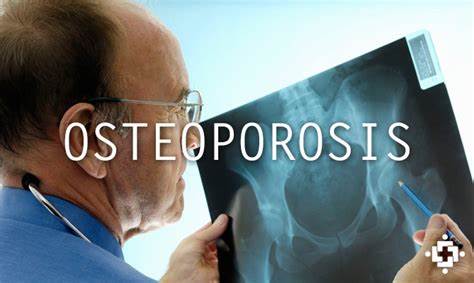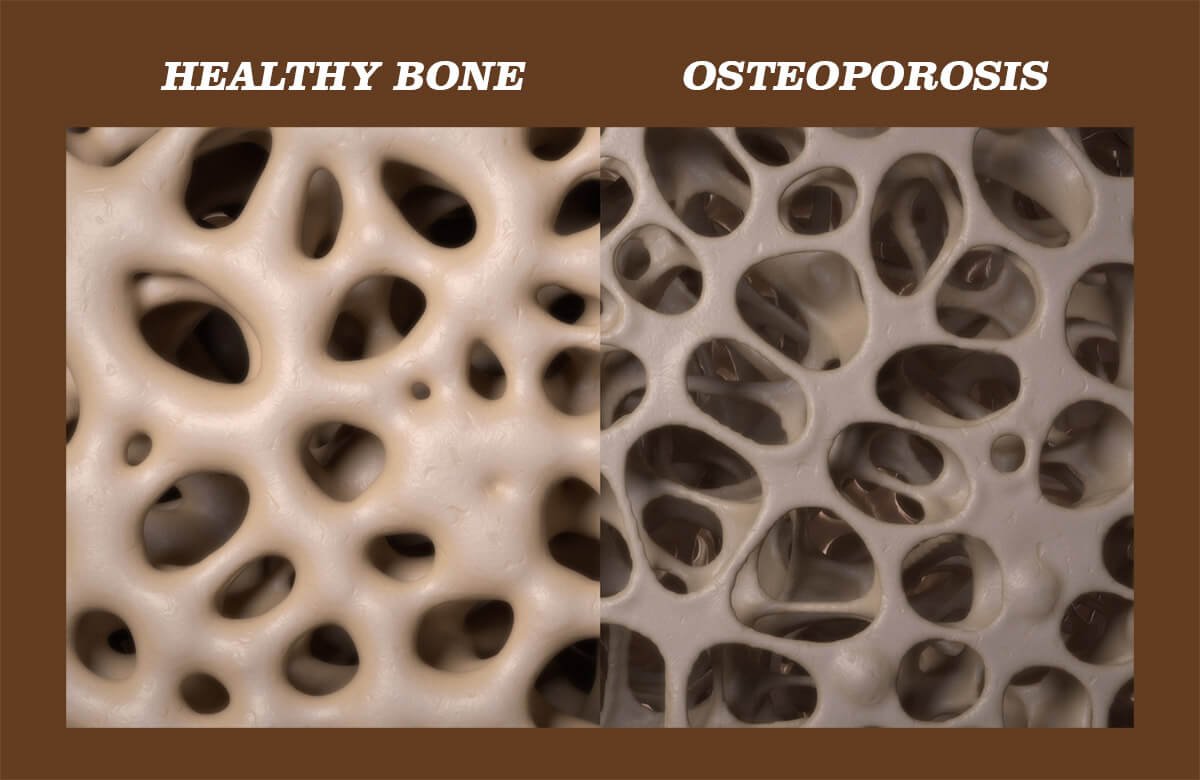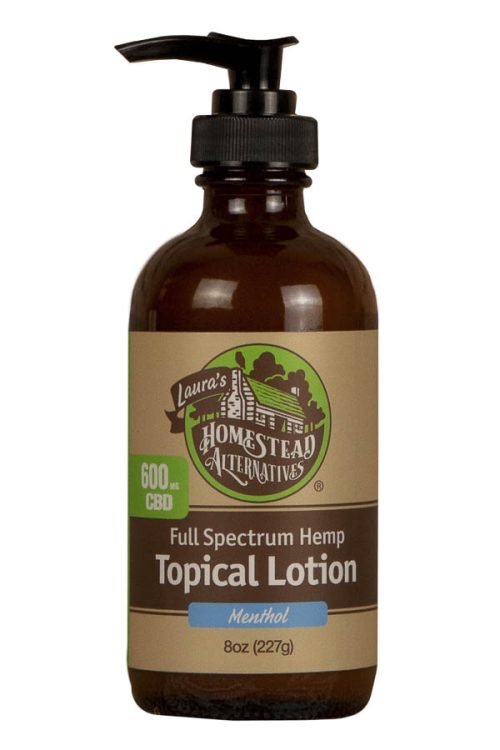
Can CBD oil help with osteoporosis?
According to the International Osteoporosis Foundation, worldwide, 1 out of every 3 women over the age of 50 and 1 out of every 5 men will experience bone fractures as a result of osteoporosis.
In this article, we cover a few helpful topics:
- What osteoporosis is
- How the endocannabinoid system plays a role in bone health
- How CBD oil may help with osteoporosis relief and prevention
What Is Osteoporosis?
Osteoporosis is the most common bone disease in humans, characterized by a decrease in bone density, which leads to weaker, more fragile bones. The weakening of the bones results in a higher likelihood of fractures, often in the hips and wrists, or collapsing of the spine.
The body actively makes and breaks down bone through a remodeling process that supports bone integrity.

As we age, the rate of bone breakdown often exceeds the rate of new bone formation, resulting in a decrease in overall bone mass. Osteoporosis, a condition characterized by abnormal bone destruction, leads to bones becoming brittle and porous—resembling a sponge rather than solid bone. This condition increases the risk of fractures, pain, stooped posture, and loss of height.
Who Is Most At Risk of Osteoporosis?
Osteoporosis affects a vast number of people across all sexes and races, with its prevalence expected to rise as the population ages. While it can impact individuals of all age groups, it is more commonly seen in Caucasians, seniors, and women. Key risk factors include genetics, lack of exercise, insufficient calcium and vitamin D intake, smoking, excessive alcohol consumption, history of rheumatoid arthritis, low body weight, and a family history of the disease.
For women, bone loss often accelerates due to decreases in estrogen, a hormone crucial for bone production. During menopause, when estrogen levels drop, the body’s ability to produce new bone diminishes, leading to a decrease in bone mass or density.
Symptoms and Diagnosis of Osteoporosis
Osteoporosis is often referred to as a silent disease because it typically does not present symptoms until a fracture occurs. A diagnosis can be confirmed through bone density tests.
How CBD Oil May Help With Osteoporosis
There is growing interest in how CBD oil may aid in managing pain and other ailments associated with aging, including osteoporosis. Emerging evidence suggests that CBD may offer benefits beyond pain relief. For instance, pre-clinical models have shown that CBD likely may enhance bone volume following spinal cord injury.
Researchers have observed that increased expression of the CB2 receptor inhibits the activity of cells responsible for bone breakdown. Consequently, drugs that enhance the activity of this receptor have shown promise in reversing bone loss in post-menopausal osteoporosis. These findings suggest that synthetic molecules acting on CB2 receptors could serve as a basis for osteoporosis therapy.
Specific research into CBD’s effects on osteoporosis processes has demonstrated that CBD reduces bone resorption, a key factor in bone mass loss. Conversely, when the effects of CBD are blocked, bone breakdown activity increases. These findings underscore the potential of CBD to prevent bone loss associated with osteoporosis.
The Endocannabinoid System and Bone Health
Alterations in the endocannabinoid system have been observed in osteoporosis, indicating that strategic interventions in this system may offer therapeutic potential. The CB2 receptor, in particular, appears to be a promising target for osteoporosis treatment.
The endocannabinoid system plays a crucial role in regulating the activities of osteoclasts (bone-resorbing cells) and osteoblasts (bone-forming cells). Maintaining a balance between these cells is essential for bone health, but this balance is disrupted as we age, leading to decreased bone density.
Takeaways on Using CBD for Osteoporosis
CBD oil may help individuals with osteoporosis through its pain-relieving effects. Additionally, there is growing evidence that CBD directly targets aspects of osteoporosis, such as bone mass loss. While more research is needed to fully understand how CBD can be optimized for osteoporosis treatment, the current findings are promising.
By integrating CBD oil into their health regimen, individuals with osteoporosis may find a natural and effective way to manage their condition, potentially improving their overall quality of life. As always, it is important to consult with a healthcare professional before starting any new treatment, especially if you have underlying health conditions or are taking other medications.
Disclaimer:
CBD products are not approved by the FDA to diagnose, treat, cure, or prevent any disease. The FDA advises that all claims about CBD or any other supplements be substantiated by rigorous clinical studies and evidence. Consumers are urged to exercise caution when considering unconventional methods and to consult with a licensed healthcare professional before beginning any new treatment or supplement regimen.
Always rely on evidence-based medicine and the guidance of qualified medical experts when making decisions regarding your health.










